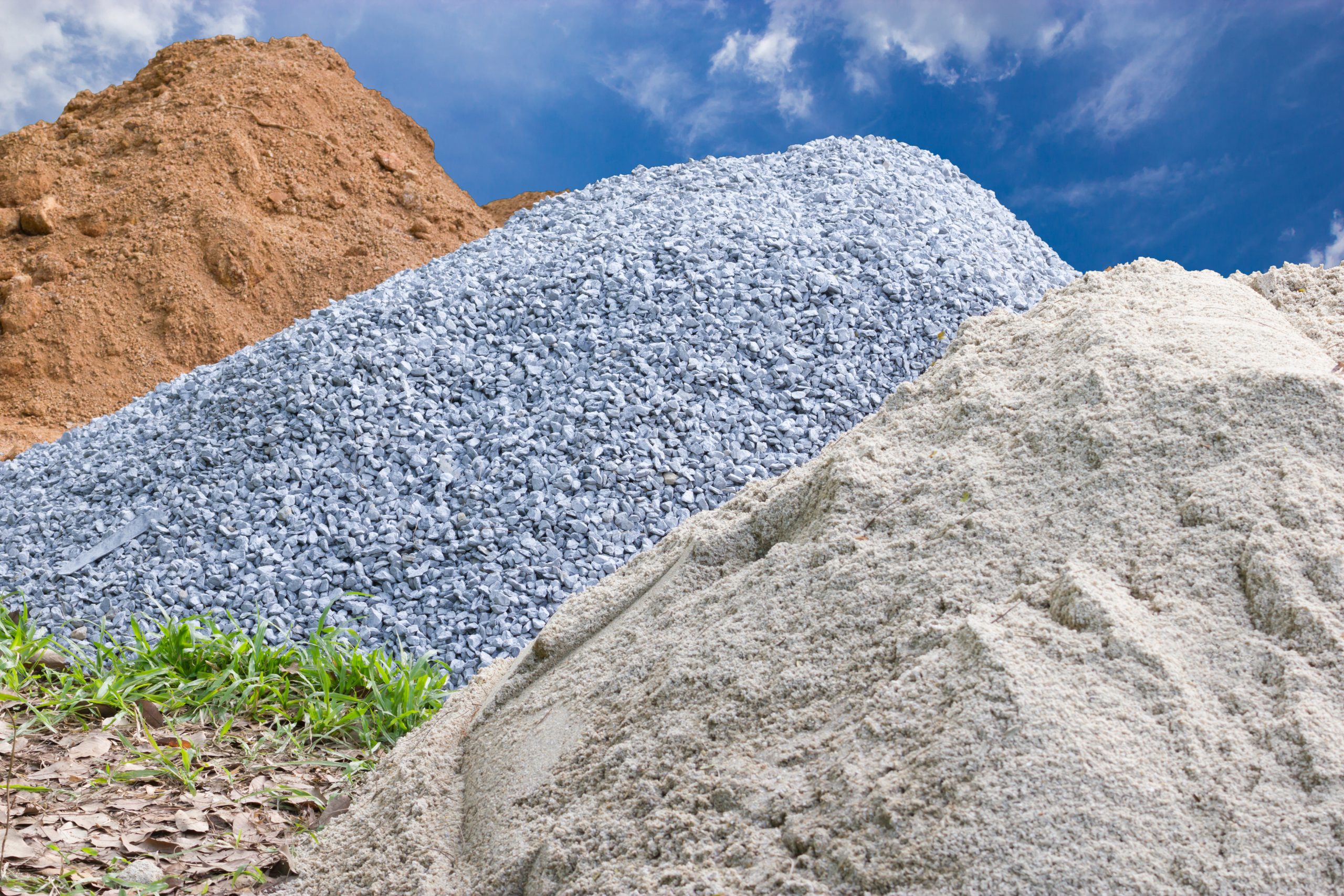There are a host of factors to consider when it comes to choosing a base material to provide support and act as a foundation for roads, driveways, slabs and pads.
It’s important to select the best possible material, but with so many options out there, it can be hard to know which one is right for the job. In this article, we’ll take a look at the different types of base materials and help you to find out which one is right for your application.
While there are a number of quarry products that may be used as base materials, they can be broadly divided into two main categories: crusher dust and road base.
What is the difference between crusher dust and road base?
Road base is made from rock materials including decomposed granite, crushed gravel or limestone. Typically road base comprises a mixture of blue or grey rock fragments around 20 mm in size with smaller rock particles and dust (fines).
Crusher dust is produced when recycled concrete or rocks are crushed. It is finer than road base comprising particles that are 5 mm or smaller in size mixed with fine particles, such as soft sand.
Which is cheaper – crusher dust or road base?
Crusher dust is usually more affordable than road base, particularly when it has been made from crushed rock (rather than discarded rock) and/or recycled concrete.
When should you use crusher dust?
Crusher dust is an economical, environmentally friendly and versatile packing material with excellent compactability.
As crusher dust often contains recycled concrete, it is especially useful for creating strong smooth surfaces beneath slabs, pads, and pavers. It is a non-porous material that stops water seeping in below surface structures, slabs, and paving, reducing subsidence, waterlogging and pothole formation.
Crusher dust also works well on its own as a surface material for unsealed driveways, paths and walkways. It is ideal for landscaping as a fertiliser and soil enhancer. Scattered on garden beds it increases the mineral content in the soil.
It also makes an excellent packing material around pavers, water tanks and pipes.
When should you use road base?
Road base, as the name implies, is used as a foundation material for roads, driveways, parking lots and pathways, beneath building pads and slabs, and in hardstand areas. It is very compactable and delivers excellent stability and support to heavy structures.
Ideally, road base should be laid to a thickness of 100 mm to 250 mm, graded, compacted and water-bound in order to deliver optimal surface integrity.
Crusher dust and road base are both highly compactable, durable and strong, delivering excellent results in a variety of construction and landscaping applications.
Our takeaway
Although crusher dust and road base are both highly compactable, durable and strong, delivering excellent results in a variety of construction and landscaping applications, it’s important to select the right product for your particular requirements.
Road base is better for supporting heavier surface level materials, main roads and buildings, while crusher dust offers a more affordable and environmentally friendly alternative and is well-suited as a base material for smaller roads, slabs, and pads. Recycled concrete crusher dust is also excellent for use as a fertiliser in landscaping projects.
To find your ideal base material, browse our extensive range of quarry and landscaping materials or talk to our friendly team today.
We supply & deliver quarry and landscaping materials to a host of leading brands including







